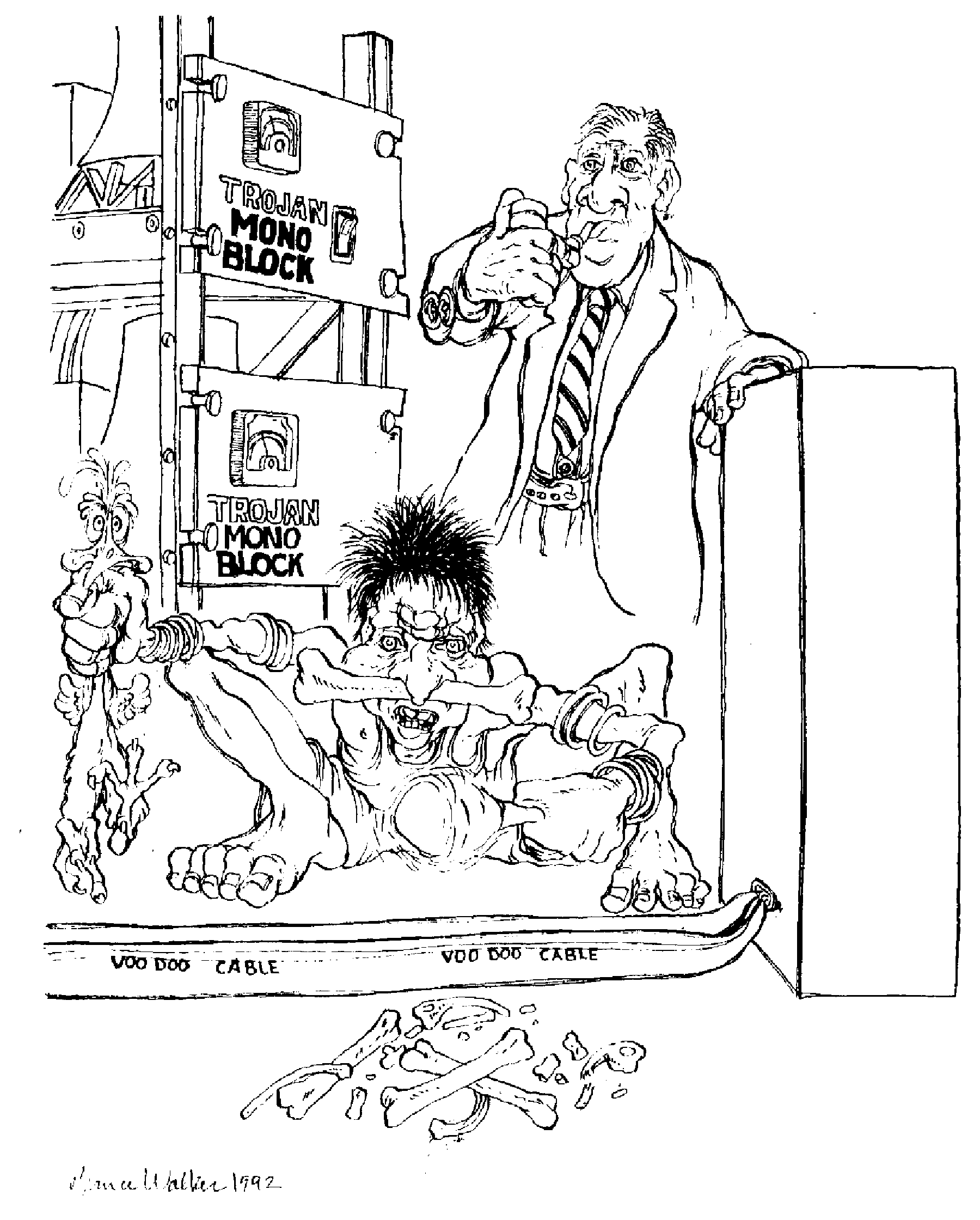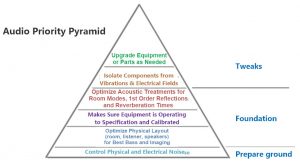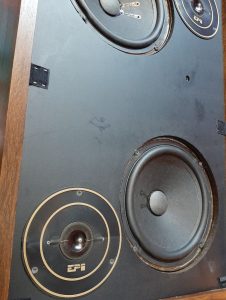
There's been a vast amount written about what an audiophile is. (Personally, I and my friends have always preferred the term "HiFi Crazies," which, at least to us, seems more accurate and less pretentious.) Audiophiles—depending on who's writing, where, and when—have been described as everything or every combination of things from music lovers to equipment lovers, to collectors of various things, ranging from technical or sales literature to memorized spec's, to recordings, to current or "classic" hi-fi gear, to entire collections of hi-fi-related magazines.
"Audiophilia," to use our hobby's fancy name, has also had many descriptions, One of those is "perhaps the most weirdly contentious pastime ever devised."
In other hobbies, it's not at all unusual for participants to have strong feelings, and even to argue about which something—which team, which product, which player, technique or style, etc.—is better. In ours, though, in addition to all of those other things, we have disputes that have run for years, each backed by large numbers of audiophile supporters, over whether (as with cables, cable lifters, Mpingo discs, "special" treatments, power amplifiers, and any number of other things) some product, practice, or treatment makes any difference at all.
Part of the reason for this is simply that, with audio, unlike so many other things, there are issues where it's not easy to reach a definitive and absolute conclusion. You can see if somebody hits, catches, or drops a ball, or if he gets it through a hoop or carries it across a goal line; you can measure the quarter-mile speed and time of a dragster; you can prove the winner of a race with photographs. For that matter, with photography, you can easily tell which camera, film, or lens is better—or at least if there is a difference. For just about any hobby other than our own, differences—who wins and who loses—can be easily seen, measured, or otherwise determined.
That's because, in all of those other hobbies, a result (who or which wins or is better):
- has a known, clearly defined, and likely measurable standard. (For oenophiles, another kind of hobbyist, two different wines do each have their own known characteristic and defining taste, and each is certainly and recognizably different from the other);
- a result is judgeable as a single isolable factor (taste, in this case);
- a result can be judged from an unchanging sample (all glasses from the same bottle or all sips from the same glass will have all of the defining characteristics and all will be the same); and, results will always remain the same at different times, in different places, or under different circumstances. (The score for the same game, for example, will always be the same whether you attend it in person, watch it on TV—either live or as a re-run—or read about in a newspaper).
HiFi is way different. To understand why, let's take a look at that last set of characteristics for differentiation. First, HiFi is a means of music (or at least sound) reproduction. In order to have "...a known, clearly defined, and likely measurable standard..." to judge that by, we would have to know exactly what the music or sound to be reproduced had actually sounded like at the time it was recorded, so that we could compare the sound recorded to the sound reproduced. As I've written earlier, NOBODY knows that is. Or, to perhaps put it more accurately, everybody knows what they heard if they were there at the original recording session, but:
- What each of them heard was different, depending where they were in the room relative to the origin of each of the music's component sounds;
- no one person could ever be in all of the locations of all of the recording microphones at once, so he could never have heard what they all heard as they heard it; and,
- if it was a multi-track studio recording, there likely never was an original recording session, but only a series of separate, "takes" of separate performers or instrumental or vocal groups, so there was actually no original session of music to reproduce and no real standard for judgment.
Second, music not only has no one single judgeable factor, but everybody's subjective judgment of the existing factors may be different, with some liking some particular thing; others disliking it; and still others not noticing it at all. That's one of the reasons why Double Blind Testing—for many things, the "gold standard" of test procedures—can't work for audio.
The third reason is that music, by its very nature is constantly changing from moment to moment. That means that there's never a constant and unchanging thing to be judged, but, instead, a feast of ever-changing tones, harmonics, dynamics and tempi—each another reason why double-blind testing, which requires one single isolable test characteristic in order to work, can never apply.
Finally, just because speakers or some other system component measure in some particular way on a test bench or in an anechoic chamber does not mean that their performance, either measurable or subjective, will be the same in any two listening rooms, or even at any two positions in the same listening room. In short, just because a thing is good or bad in one location or system doesn't mean that it will necessarily sound anything like the same in some other place or system. For audiophiles, it's always all subjective, and measurements are of little value unless they are of an entire system in an entire room, from a particular listening position. And even then, their significance may be limited.
So what does that mean? Two things, both of which please me.
One is that, although bench or other testing may have a place in the process of designing, manufacturing, or maintaining quality control of any single audio product, my own two ears are—as it seems to me they should be—still the very best test instruments for judging my system or what I should put into it.
The other is that my system can never be perfect. It will always be incomplete, and there will always be something that I can want, or try, or look forward to, to make it better.
Good! If it ever were, I'd have to go find another hobby!





































